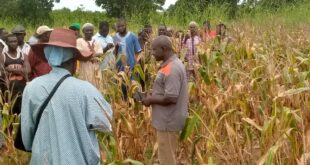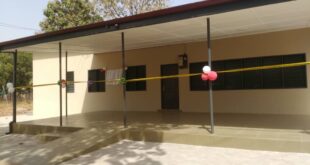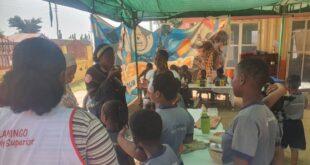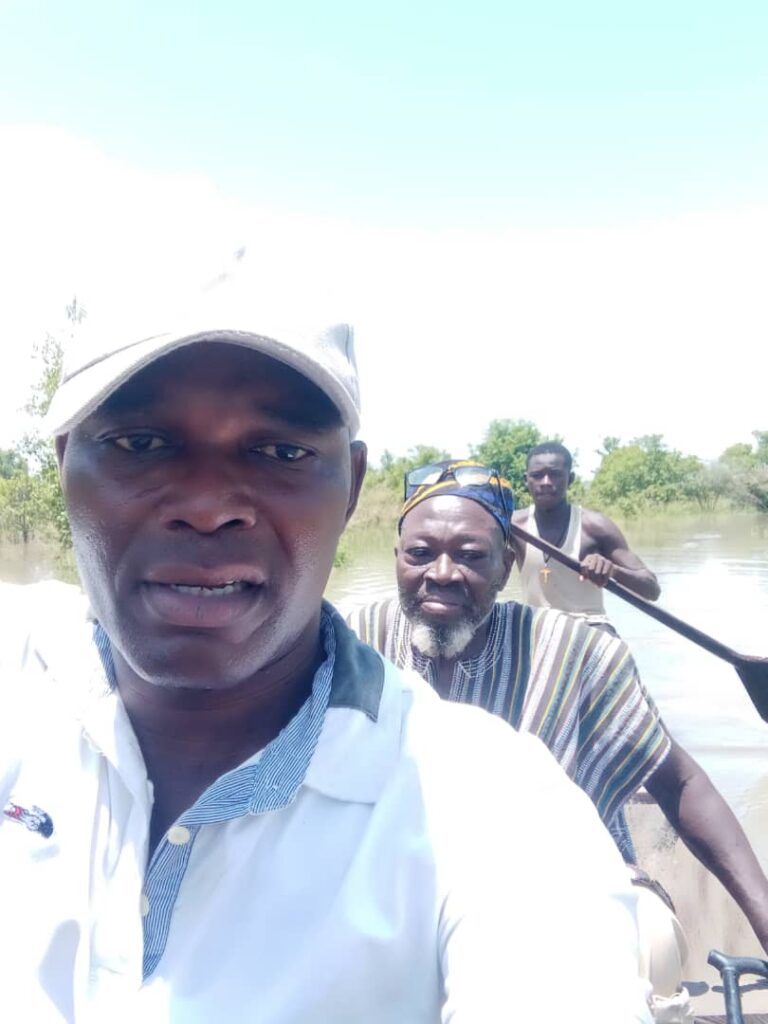 Walewale, Ghana – Pending any concrete measures by government to end or mitigate perennial floods in the North East Region of Ghana, the lives of humans, livestock, farmlands and buildings among others would continue to be counted as losses every year by residents.
Walewale, Ghana – Pending any concrete measures by government to end or mitigate perennial floods in the North East Region of Ghana, the lives of humans, livestock, farmlands and buildings among others would continue to be counted as losses every year by residents.
The floods, often exacerbated by the spilling of the Bagre and Kompienga Dams in Burkina Faso, had over the last decade caused pain and trauma to thousands of residents residing along the White Volta River in the region.
For instance, following excessive floods in 2021, 9 people lost their lives according to a citinewsroom.com report quoting NADMO sources. The year before that, per graphic.com.gh report, 13,469 people across the region were severely affected as their houses were completely destroyed thereby rendering them homeless.
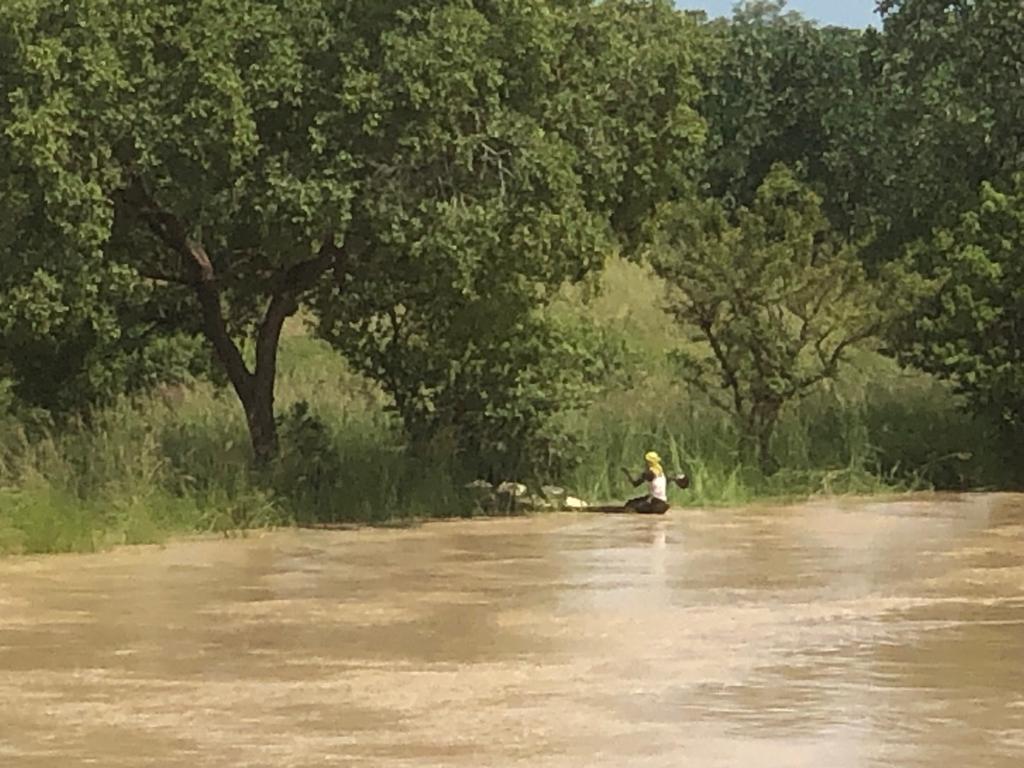 The most affected areas by the annual floods usually include Chereponi, Mamprugu Moaduri, West Mamprusi, East Mamprusi, Yunyoo-Nasuan and Bunkpurugu-Nakpanduri.
The most affected areas by the annual floods usually include Chereponi, Mamprugu Moaduri, West Mamprusi, East Mamprusi, Yunyoo-Nasuan and Bunkpurugu-Nakpanduri.
To avoid this recurring environmental catastrophe, Walewale based charity organisation, the Centre for Ecological Agriculture and Livelihood (CEAL Ghana) has begun engagement with farmers in selected flood prone communities in the West Mamprusi Municipality to adopt robust mitigation measures against future floods.
“….to reduce the vulnerability of communities along the White Volta River, a new initiative is being introduced to help inhabitants and farmers in particular to overcome food security challenges. The initiative allows communities and their people to voluntarily and on compassionate grounds discuss how farmlands lying fallow or being cultivated by some individuals upland, could be redistributed so that farmers in low-lying or flood prone areas could move upland for some of the parcels of land in order to avoid flood.
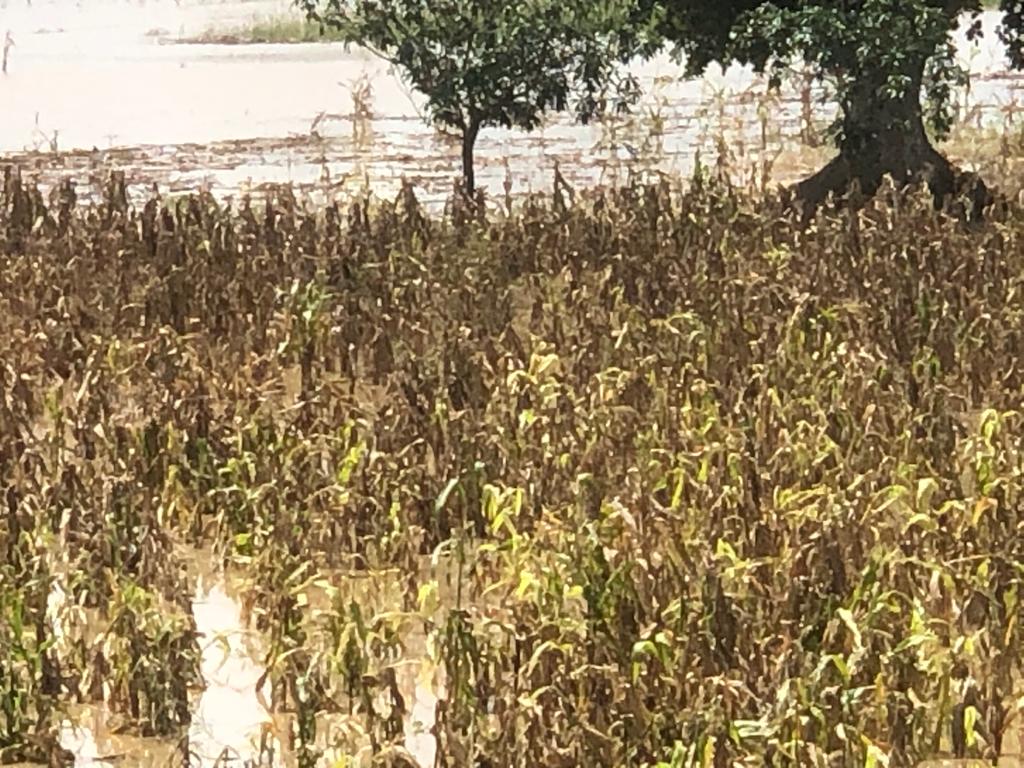 It also supports farmers to adopt early maturing seeds that allow them to plant and harvest before floods occur. It further looks at intensive compound farming with promising returns. Finally, the initiative focuses on post-flood cropping or farming after the flood waters have receded leaving behind fertile soils along the river banks”, Executive Director, CEAL-Ghana, Jobila Sulemana Issifu told SavannahNews in an interview after a sensitization tour of some communities hit by floods.
It also supports farmers to adopt early maturing seeds that allow them to plant and harvest before floods occur. It further looks at intensive compound farming with promising returns. Finally, the initiative focuses on post-flood cropping or farming after the flood waters have receded leaving behind fertile soils along the river banks”, Executive Director, CEAL-Ghana, Jobila Sulemana Issifu told SavannahNews in an interview after a sensitization tour of some communities hit by floods.
According to Mr. Issifu, the initiative was bringing together community members including chiefs, opinion leaders, family heads, land owners, youth groups and women’s group leaders among others to discuss and find a way forward with special focus on helping those whose farmlands are affected yearly by the floods.
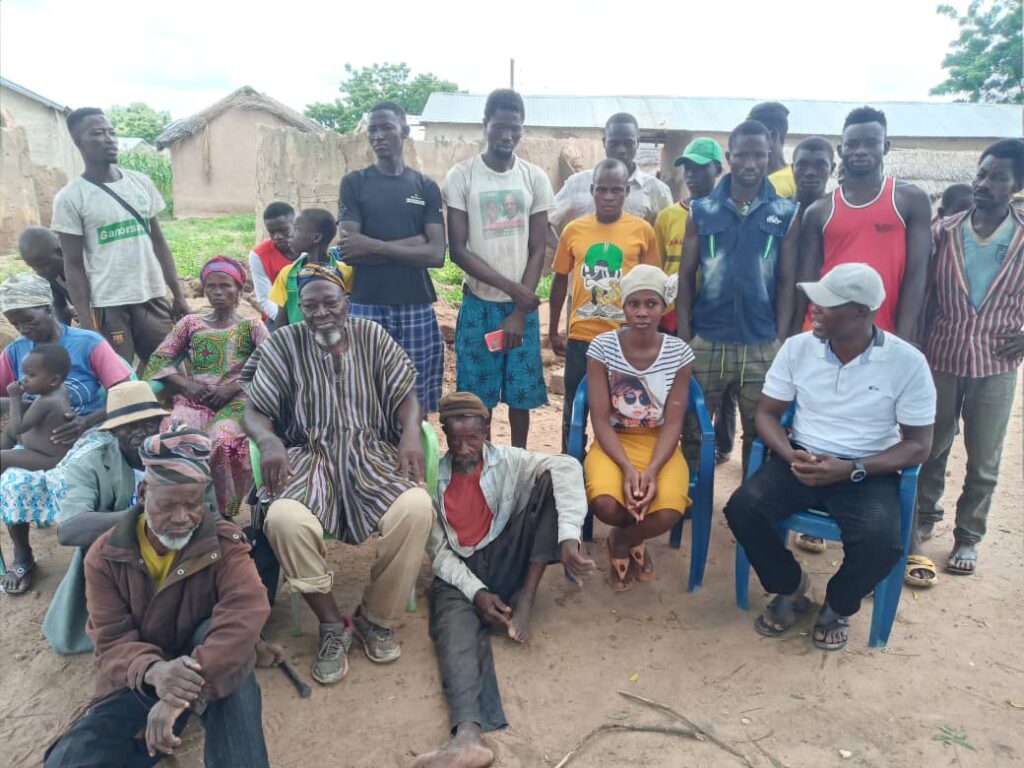 “One community along the river banks, Dibisi has taken the bold initiative to discuss and help each other through the farmland sharing or redistribution system, adoption of early maturing seeds, compound farming and post-flood cropping system.”
“One community along the river banks, Dibisi has taken the bold initiative to discuss and help each other through the farmland sharing or redistribution system, adoption of early maturing seeds, compound farming and post-flood cropping system.”
Debisi is a relatively small farming community under Kpasenkpe Traditional Area in the West Mamprusi Municipality. Community members, men and women, engage in crop farming, livestock rearing and fishing as their sources of livelihoods.
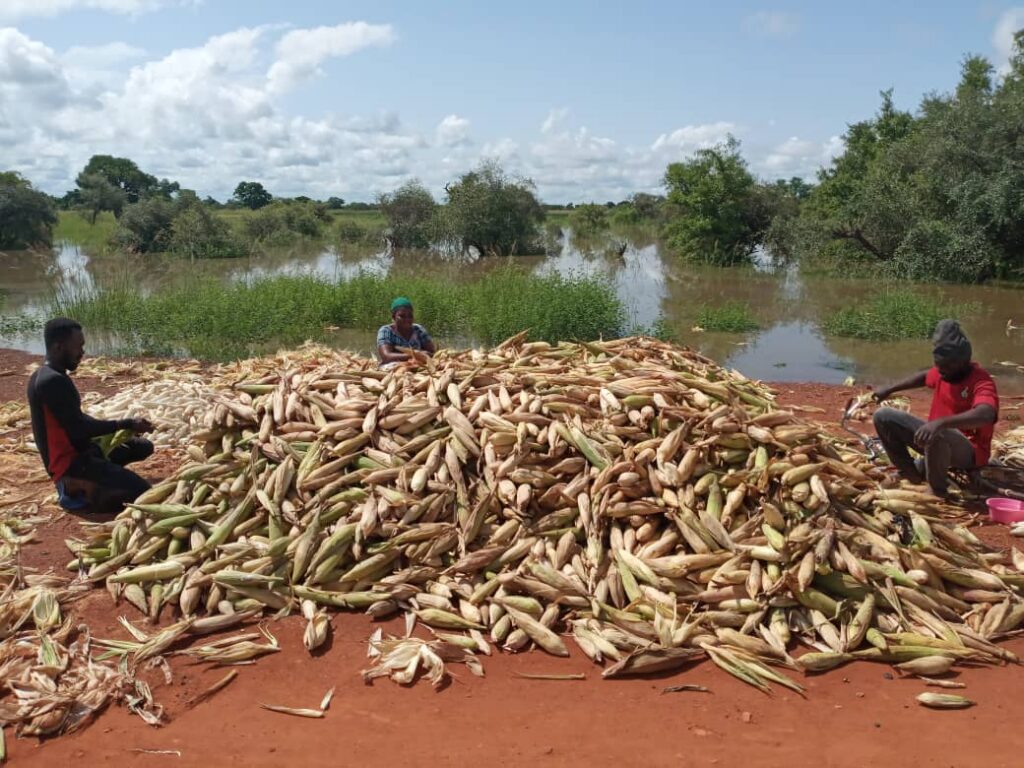 In the coming days, CEAL-Ghana would be providing training and support to members of the Debisi community on how to use simple tools to identify land boundaries and farmland positions to enable them assess their vulnerabilities in terms of climate change impacts in flood prone areas.
In the coming days, CEAL-Ghana would be providing training and support to members of the Debisi community on how to use simple tools to identify land boundaries and farmland positions to enable them assess their vulnerabilities in terms of climate change impacts in flood prone areas.
“At the end of the training, we expect the people to understand how they could be impacted by flood both at minimum and worst case scenarios, how to accurately predict when floods will occur and then trigger a communal discussion for planting early maturing seeds as well as practice post-flood farming.
It is also expected that farmers would adopt compound farming practices and the non-flooding farmland sharing or redistribution system. With the non-flooding farmland sharing system, the goal is to encourage farmers who have farms in low-lying or flood prone areas to abandon them and move to higher grounds and farm so as to mitigate any impending loss of crops during floods”, Mr. Issifu explained.
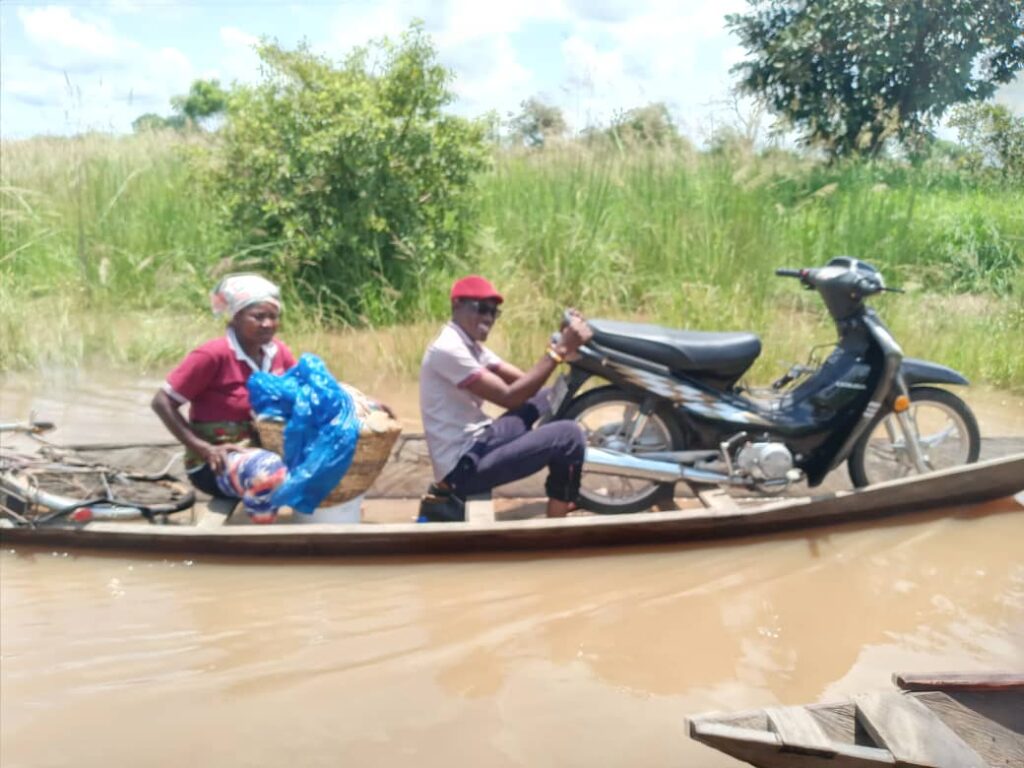 The Chief of Debisi, Di Dana urged his people to view the whole initiative as something borders on equitable development and holding each other against a common enemy called flood which brings them pain, poverty and hunger.
The Chief of Debisi, Di Dana urged his people to view the whole initiative as something borders on equitable development and holding each other against a common enemy called flood which brings them pain, poverty and hunger.
“We are the same people, we have intermarried, and we are one people: mothers, uncles, sons, daughters, cousins and nieces. We can help each other and should be able to do it easily”, Di Dana, Chief of Debisi emphasized.
The Executive Director of CEAL-Ghana indicated that the organisation and its partners ELPG-Netherlands, HSF-Kenya and UNDP/GEF-SGP would support the farmers with agro ecological plant nutrition and protection support if the lands are no longer fertile This he believed would motivate the farmers to stay and farm on the given pieces of land and not return to the flood prone lands to farm.
By SavannahNewsOnline.Com/Kusiele Ziem
 Savannah News Online Reporting Only What Matters Most
Savannah News Online Reporting Only What Matters Most
